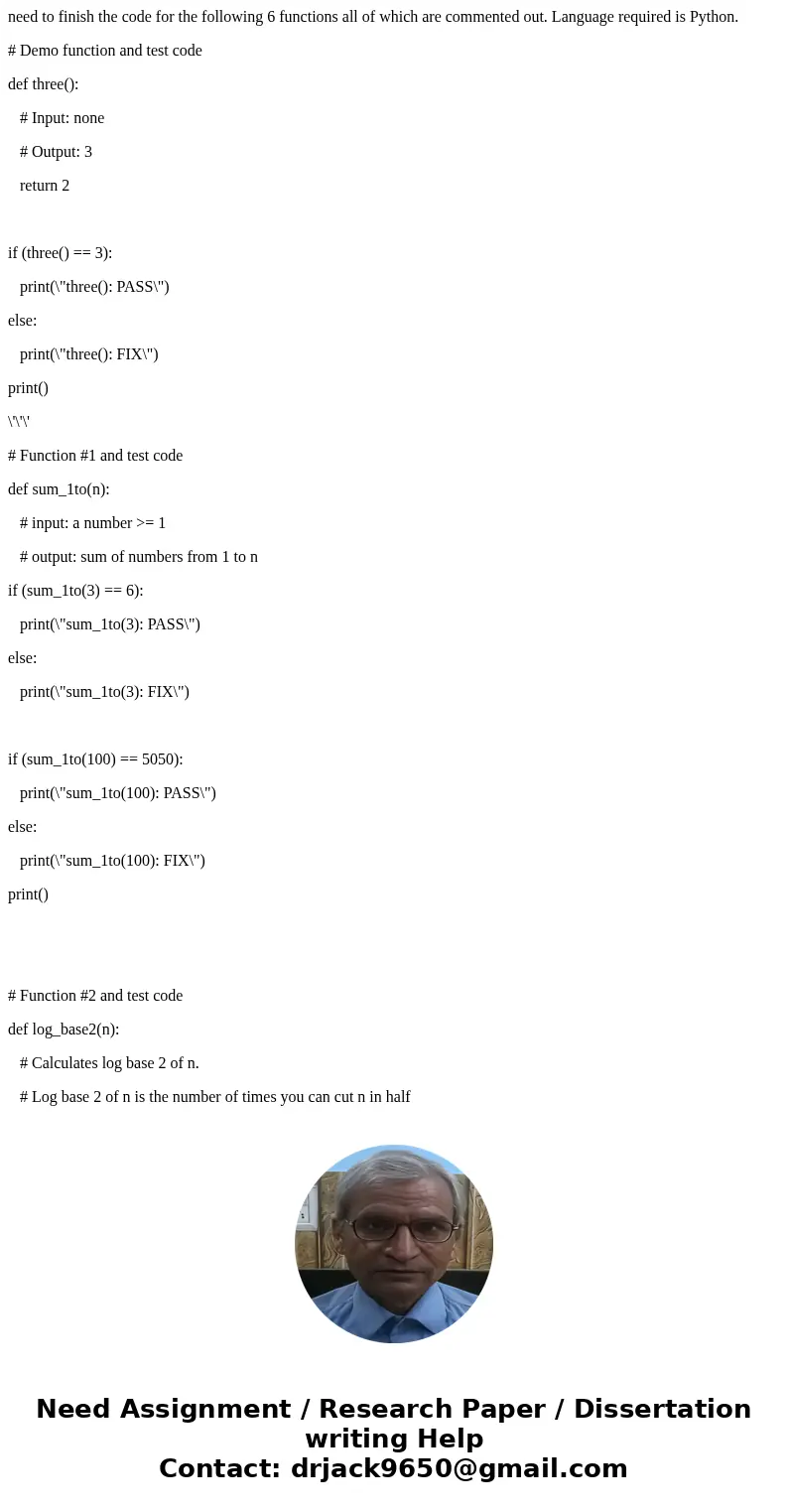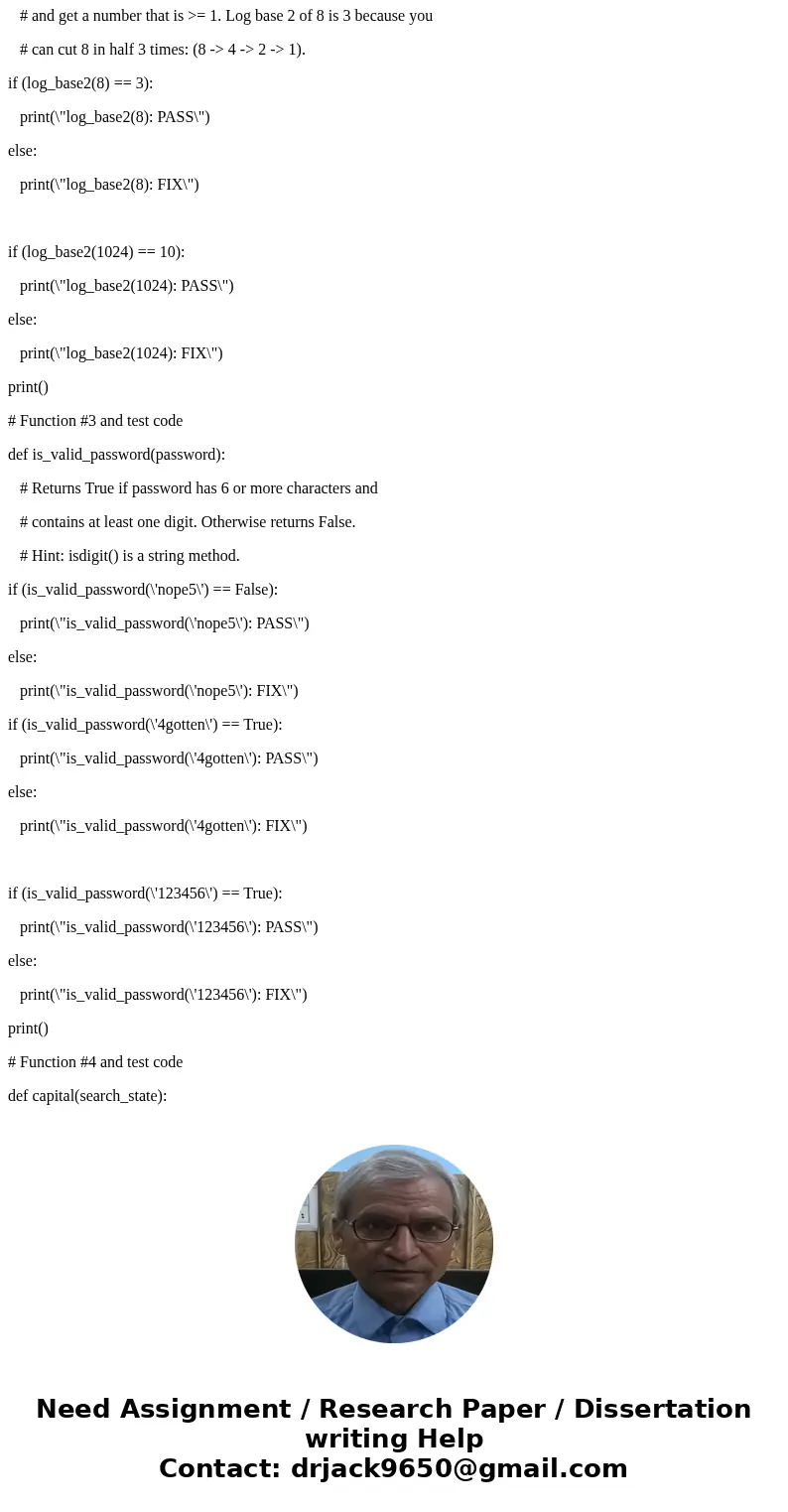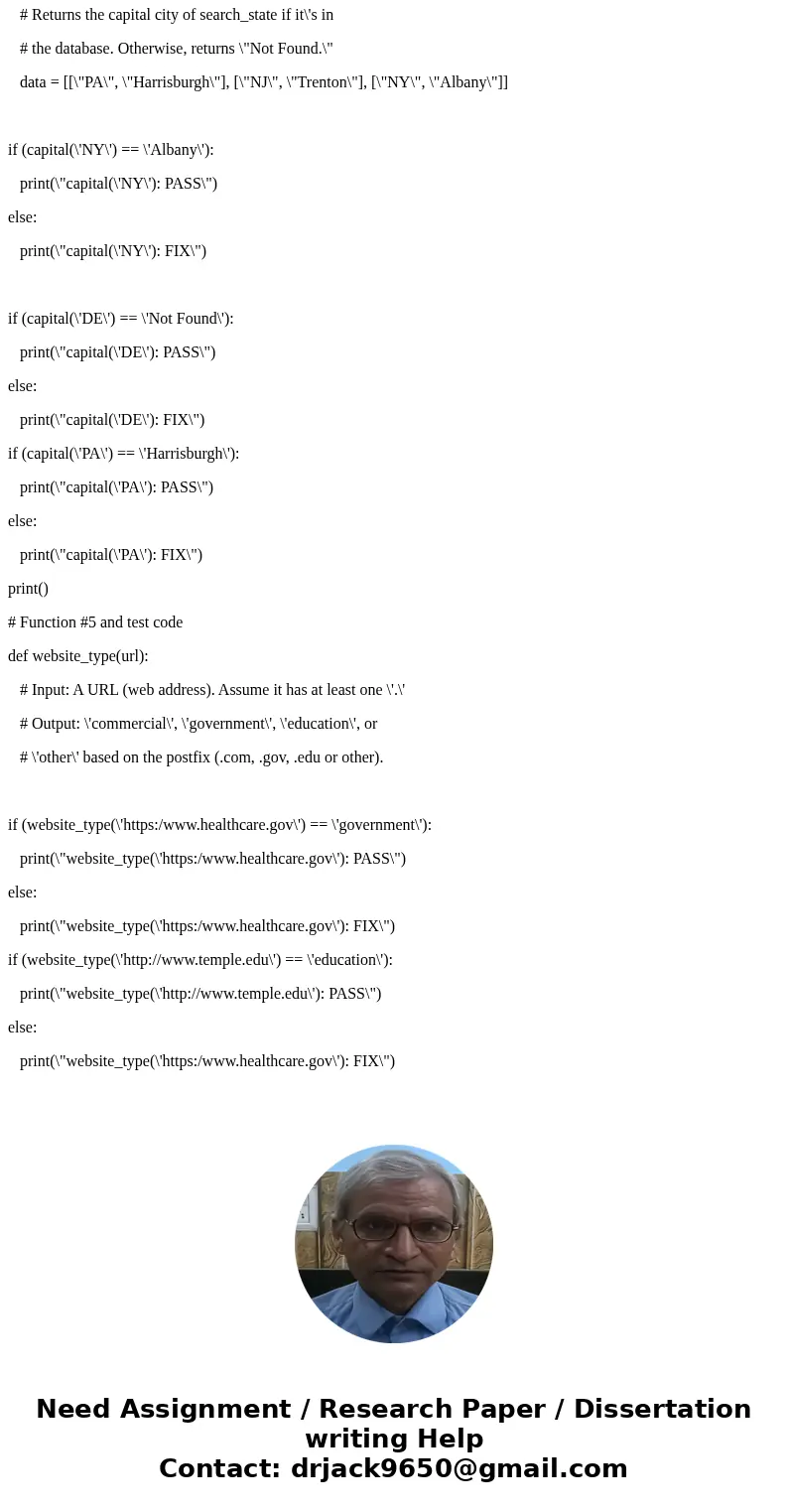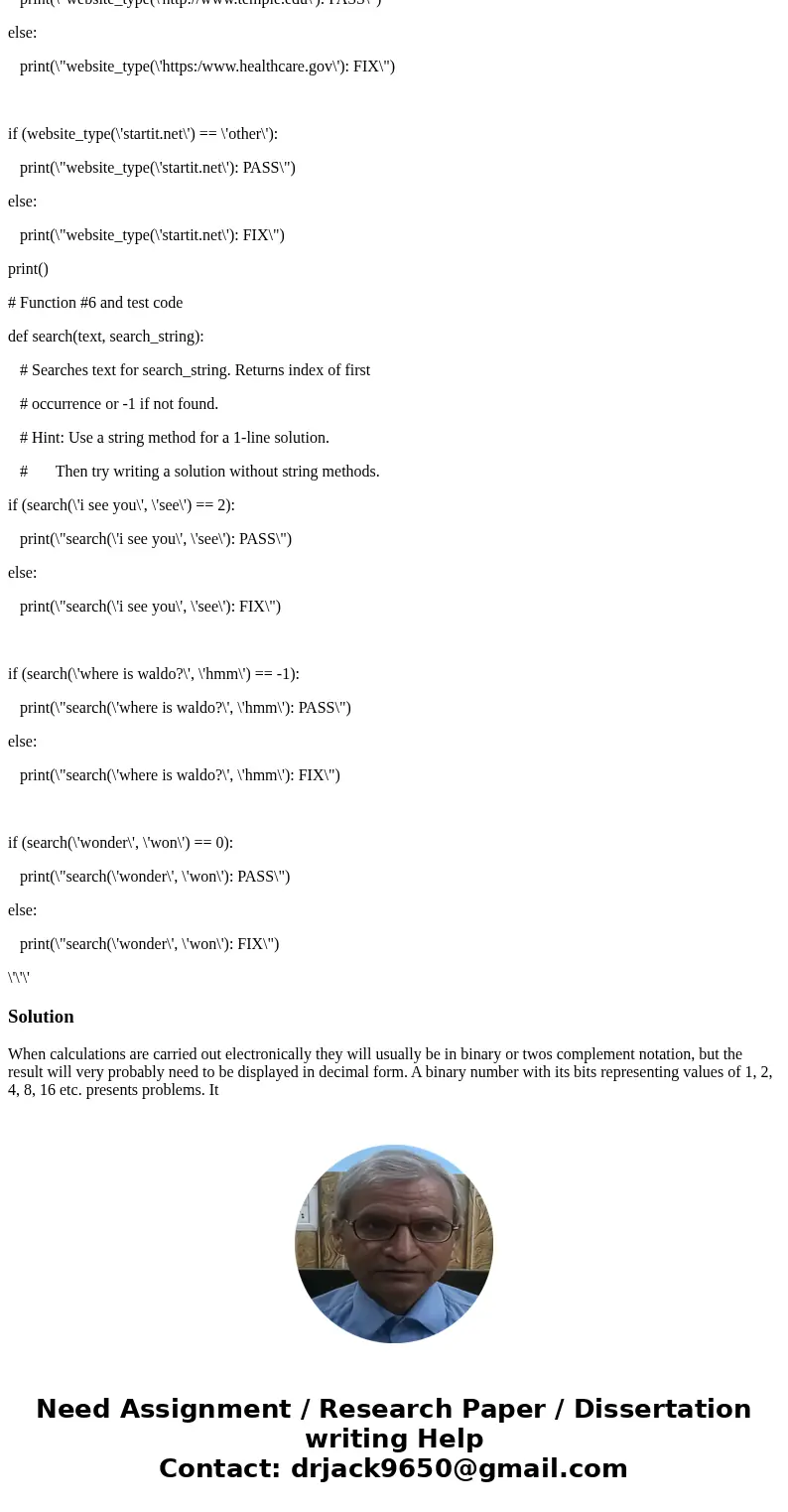need to finish the code for the following 6 functions all of
need to finish the code for the following 6 functions all of which are commented out. Language required is Python.
# Demo function and test code
def three():
# Input: none
# Output: 3
return 2
if (three() == 3):
print(\"three(): PASS\")
else:
print(\"three(): FIX\")
print()
\'\'\'
# Function #1 and test code
def sum_1to(n):
# input: a number >= 1
# output: sum of numbers from 1 to n
if (sum_1to(3) == 6):
print(\"sum_1to(3): PASS\")
else:
print(\"sum_1to(3): FIX\")
if (sum_1to(100) == 5050):
print(\"sum_1to(100): PASS\")
else:
print(\"sum_1to(100): FIX\")
print()
# Function #2 and test code
def log_base2(n):
# Calculates log base 2 of n.
# Log base 2 of n is the number of times you can cut n in half
# and get a number that is >= 1. Log base 2 of 8 is 3 because you
# can cut 8 in half 3 times: (8 -> 4 -> 2 -> 1).
if (log_base2(8) == 3):
print(\"log_base2(8): PASS\")
else:
print(\"log_base2(8): FIX\")
if (log_base2(1024) == 10):
print(\"log_base2(1024): PASS\")
else:
print(\"log_base2(1024): FIX\")
print()
# Function #3 and test code
def is_valid_password(password):
# Returns True if password has 6 or more characters and
# contains at least one digit. Otherwise returns False.
# Hint: isdigit() is a string method.
if (is_valid_password(\'nope5\') == False):
print(\"is_valid_password(\'nope5\'): PASS\")
else:
print(\"is_valid_password(\'nope5\'): FIX\")
if (is_valid_password(\'4gotten\') == True):
print(\"is_valid_password(\'4gotten\'): PASS\")
else:
print(\"is_valid_password(\'4gotten\'): FIX\")
if (is_valid_password(\'123456\') == True):
print(\"is_valid_password(\'123456\'): PASS\")
else:
print(\"is_valid_password(\'123456\'): FIX\")
print()
# Function #4 and test code
def capital(search_state):
# Returns the capital city of search_state if it\'s in
# the database. Otherwise, returns \"Not Found.\"
data = [[\"PA\", \"Harrisburgh\"], [\"NJ\", \"Trenton\"], [\"NY\", \"Albany\"]]
if (capital(\'NY\') == \'Albany\'):
print(\"capital(\'NY\'): PASS\")
else:
print(\"capital(\'NY\'): FIX\")
if (capital(\'DE\') == \'Not Found\'):
print(\"capital(\'DE\'): PASS\")
else:
print(\"capital(\'DE\'): FIX\")
if (capital(\'PA\') == \'Harrisburgh\'):
print(\"capital(\'PA\'): PASS\")
else:
print(\"capital(\'PA\'): FIX\")
print()
# Function #5 and test code
def website_type(url):
# Input: A URL (web address). Assume it has at least one \'.\'
# Output: \'commercial\', \'government\', \'education\', or
# \'other\' based on the postfix (.com, .gov, .edu or other).
if (website_type(\'https:/www.healthcare.gov\') == \'government\'):
print(\"website_type(\'https:/www.healthcare.gov\'): PASS\")
else:
print(\"website_type(\'https:/www.healthcare.gov\'): FIX\")
if (website_type(\'http://www.temple.edu\') == \'education\'):
print(\"website_type(\'http://www.temple.edu\'): PASS\")
else:
print(\"website_type(\'https:/www.healthcare.gov\'): FIX\")
if (website_type(\'startit.net\') == \'other\'):
print(\"website_type(\'startit.net\'): PASS\")
else:
print(\"website_type(\'startit.net\'): FIX\")
print()
# Function #6 and test code
def search(text, search_string):
# Searches text for search_string. Returns index of first
# occurrence or -1 if not found.
# Hint: Use a string method for a 1-line solution.
# Then try writing a solution without string methods.
if (search(\'i see you\', \'see\') == 2):
print(\"search(\'i see you\', \'see\'): PASS\")
else:
print(\"search(\'i see you\', \'see\'): FIX\")
if (search(\'where is waldo?\', \'hmm\') == -1):
print(\"search(\'where is waldo?\', \'hmm\'): PASS\")
else:
print(\"search(\'where is waldo?\', \'hmm\'): FIX\")
if (search(\'wonder\', \'won\') == 0):
print(\"search(\'wonder\', \'won\'): PASS\")
else:
print(\"search(\'wonder\', \'won\'): FIX\")
\'\'\'
Solution
When calculations are carried out electronically they will usually be in binary or twos complement notation, but the result will very probably need to be displayed in decimal form. A binary number with its bits representing values of 1, 2, 4, 8, 16 etc. presents problems. It




 Homework Sourse
Homework Sourse